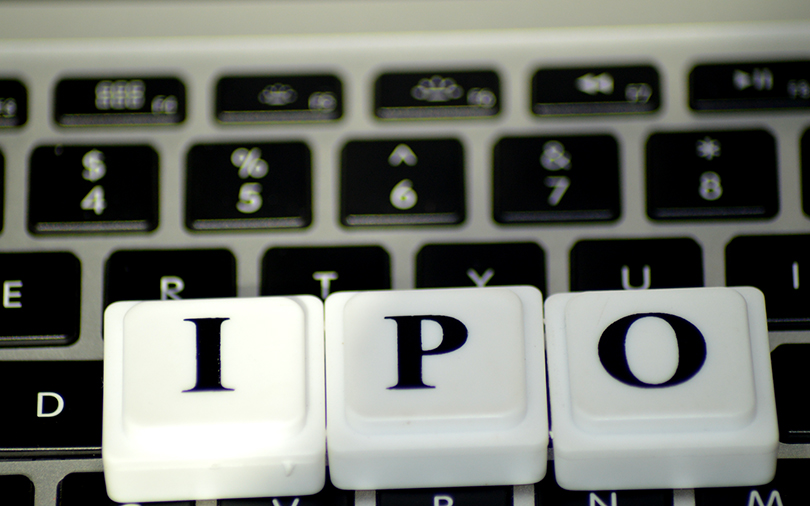
The initial public offering (IPO) of auto components maker Sandhar Technologies Ltd was off to a slow start on Monday, with the issue receiving only a handful of bids led by retail investors.
Sandhar’s public offering of 10.87 million shares, excluding the anchor allotment, received bids for 5.33 lakh shares, stock exchange data showed. The book was subscribed 4.9% at the end of day one.
Institutional buyers did not bid for a single share from the 3.08 million shares reserved for them.
Non-institutional investors, comprising wealthy individuals and corporate bodies, bid for a handful of shares from their quota.
The category for retail investors, who cannot individually bid for shares exceeding Rs 2 lakh in value, was subscribed 9.5%.
Sandhar had raised Rs 153.74 crore ($23.6 million) from anchor investors, including venture capital firm Volrado, last Friday.
Sandhar sold 4.6 million shares to 15 anchor investors at the upper end of the IPO price band of Rs 327-332 apiece, it said in a stock exchange filing.
Volrado Venture Partners Fund II bought 3,31,290 shares. Other anchor investors mostly included mutual funds.
Sandhar is seeking Rs 1,998 crore in valuation through the IPO. The company will issue fresh shares worth Rs 300 crore while private equity investor GTI Capital will sell its stake via the IPO. The public issue closes on Wednesday.
VCCircle had previously reported that GTI Capital is likely to score neat returns from its bet on the auto component maker.
Sandhar Technologies will join nearly 50 auto parts makers on the stock exchanges. These include Minda Industries Ltd, JBM Auto Ltd, Motherson Sumi Systems, Bharat Gears and GNA Axles Ltd.
ICICI Securities and Axis Capital are the merchant bankers managing the IPO.
Sandhar was incorporated in 1987 by first-generation entrepreneur Jayant Davar. He is the co-chairman and managing director of the company.
The company builds safety and security systems for vehicles. It has 29 factories across eight states in India, besides two facilities in Spain and one in Mexico. It has one assembly and packaging centre in Poland. The company is setting up eight more units in India.
Sandhar had commenced operations as a supplier of sheet metal components to Hero MotoCorp, formerly Hero Honda Motors Ltd. Its existing clients include Royal Enfield, Honda Cars, Tata Motors, Ashok Leyland, Caterpillar and Bosch.
It caters to 79 Indian and global vehicle manufacturers across various segments.Sandhar makes 21 categories of products catering to different industry segments, including two-wheelers, passenger vehicles, commercial vehicles, off-highway vehicles and tractors.
Hindustan Aeronautics
Subscriptions for the IPO of state-run aerospace and defence firm Hindustan Aeronautics Ltd approached the halfway mark on the second day on Monday led by sustained bidding from institutional investors.
The public issue, which has no anchor allotment portion, received bids for 15.39 million shares against 34.10 million shares on offer. The book was subscribed 45.15%, stock exchange data showed.
Institutional buyers bid for 12.89 million shares, or nearly 78% the portion reserved for them. High net-worth individuals and corporate bodies bid for 1.4% of the shares from their quota, the data showed.
The portion set aside for retail investors, who cannot individually bid for shares exceeding Rs 2 lakh in value, was covered 20.11%.
The public issue was subscribed 24% on the first day on Friday.
HAL’s IPO closes on Tuesday. The firm is seeking a valuation of Rs 41,464 crore ($6.4 billion) through its Rs 4,229 crore maiden public offering.
The company is eyeing a valuation at the upper end of its per-share price band of Rs 1,215-1,240.
Retail investors will get a discount of Rs 25 on the price at which shares are allotted.
The promoter, the Union government, will sell 34.10 million shares representing 10.2% stake through the public issue.
At the time of filing for the IPO last October, the government had decided to sell 36.15 million shares. However, the company bought back 27.11 million shares, or 7.5% stake, from the government two months later.
After this buyback, the number of shares for which money has been paid reduced from 361.5 million to 334.38 million, and, as a result, the size of the present offer has shrunk from 36.15 million to 34.10 million shares.
The government, which owns 100% in the company, will get three years from the date of listing to bring its stake down to 75% or below to meet norms on minimum public holding.
A plan to list HAL was originally approved in 2012 but the firm did not want to make key information public as part of the listing process. In 2013, it sought an exemption from the market regulator regarding the disclosure rule but did not get one.
In October last year, HAL filed its draft prospectus. In the same month, it got regulatory clearance.
Merchant bankers SBI Capital Markets and Axis Capital will manage the IPO.
Other directly and indirectly listed firms in the defence space include Bharat Electronics Ltd, Reliance Naval (formerly Reliance Defence Engineering), Mahindra & Mahindra, Larsen & Toubro and Cyient.
HAL’s listed global peers include US firm The Boeing Co., European multinational corporation Airbus SE, Lockheed Martin, United Technologies and General Electric.
Proceeds from the HAL IPO could go towards meeting the fiscal deficit target for the current financial year, which has been revised from 3.2% to 3.5% of gross domestic product due to increases government spending .
Bengaluru-based HAL was incorporated in 1963. It designs, develops, manufactures, repairs, overhauls and services a wide range of products including aircraft, helicopters, aero-engines, avionics, accessories and aerospace structures.
The company reported consolidated net profit of Rs 2,624.7 crore for the financial year ended 31 March 2017. Its consolidated net profit stood at Rs 2,004.3 crore and Rs 994.1 crore for 2015-16 and 2014-15, respectively.
Its revenue (minus excise duty) has grown at a compound annual rate of 7.11% from 2014-15 to 2016-17.
As of 31 July 2017, the value of its order book stood at Rs 63,333 crore (nearly $10 billion).